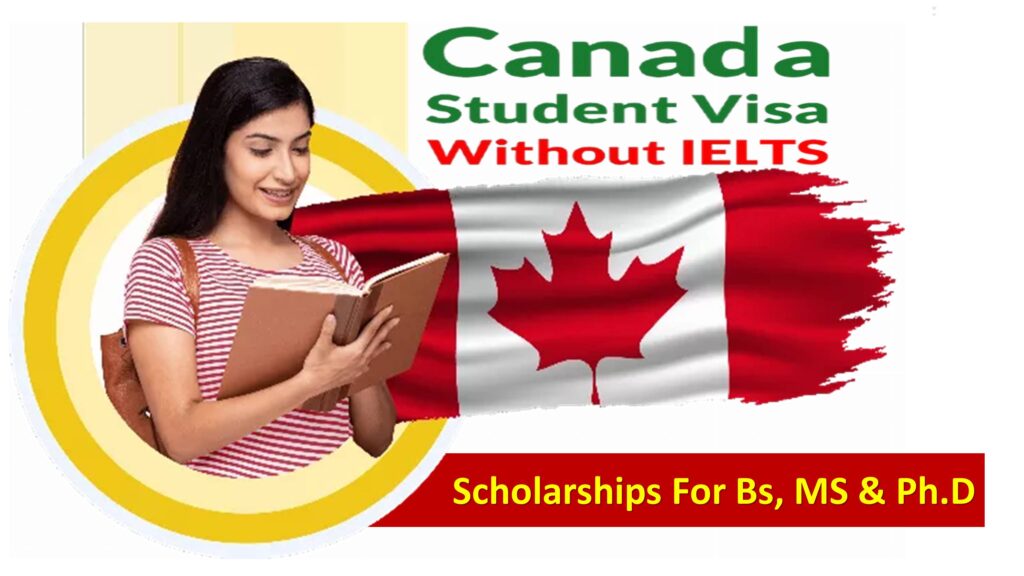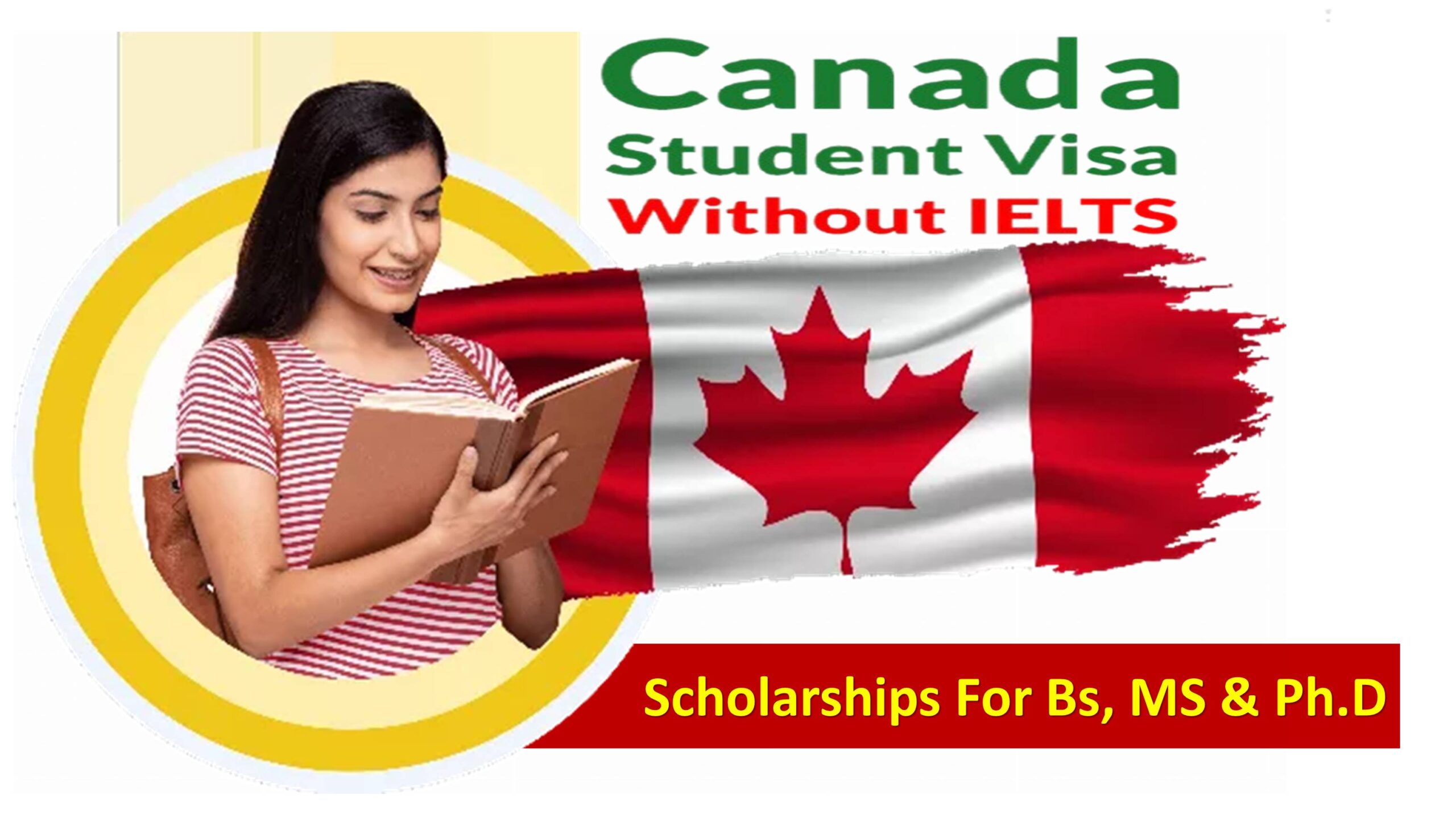Introduction:
Dreaming of studying in Canada on a scholarship? You’re not alone. Every year, thousands of students from Italy, Denmark, the USA, and the UK apply for a Canadian visa for Scholarships to access world-class education in a culturally rich and inclusive country.
This guide simplifies the process of applying for a Canadian visa for Scholarships in 2025, ensuring you’re fully prepared and confident every step of the way. With insights from Canadian government sources, education consultants, and real student experiences, we’ll walk you through everything you need to know.

Whether you’re applying for a prestigious Vanier Scholarship, a university-specific grant, or a government-funded bursary, this post has you covered.
✅ How to Apply for a Canadian Visa for Scholarships in 2025
Here’s a practical, step-by-step list to help you navigate the process:
1. Find a Scholarship That Matches Your Goals
Before applying for a Canadian visa for Scholarships, you need a confirmed scholarship offer or a letter of admission with scholarship eligibility.
Tips:
- Visit EduCanada Scholarships to explore federal and provincial-level opportunities.
- Check out major awards like:
- Vanier Canada Graduate Scholarships
- Trudeau Foundation Scholarships
- University of Toronto Lester B. Pearson International Scholarships
📌 Anchor text: Canadian government scholarship portal
📌 Link: EduCanada Scholarships
2. Apply to a Designated Learning Institution (DLI)
To apply for a Canadian visa for Scholarships, you must receive an acceptance letter from a DLI in Canada. DLIs are schools approved by the Canadian government to host international students.
Where to check:
📌 Anchor text: Check if your school is a DLI
📌 Link: DLI List – Government of Canada
3. Prepare Your Documents for the Study Permit Application
To secure your Canadian visa for Scholarships, prepare the following:
- Acceptance letter from your DLI
- Scholarship award letter or funding proof
- Passport (valid for the duration of your stay)
- Proof of financial support (scholarship counts!)
- Letter of explanation
- Immigration medical exam (if required)
- Biometrics (photo and fingerprints)
📝 Pro tip: Your scholarship funding often covers the “proof of funds” requirement — but double-check that it meets the CAD $10,000/year threshold (plus tuition).
4. Apply for the Canadian Study Permit (Visa)
Apply online through the IRCC (Immigration, Refugees and Citizenship Canada) portal.
Application steps:
- Create an account on the IRCC website
- Fill in the study permit application (IMM 1294)
- Upload all documents
- Pay the visa processing fee (CAD $150)
- Schedule biometrics and, if required, a visa interview
📌 Anchor text: Apply for your Canadian study permit here
📌 Link: IRCC Study Permit Application
5. Consider the Student Direct Stream (SDS) for Faster Processing
If you’re applying from the UK, Italy, or USA, you’re eligible for the regular processing route. However, students from some countries (e.g., India, China, the Philippines) can use SDS. While SDS isn’t available for all Tier 1 countries, it’s good to keep tabs on updates from IRCC in case expansion occurs.
6. Show Ties to Your Home Country
To prove your intent to return after graduation, highlight:
- Family ties
- Career plans
- Property or long-term commitments at home
This builds trust and demonstrates compliance with visa requirements.
7. Wait for a Decision and Prepare for Arrival
Processing times vary — from 4 to 12 weeks. Track your application using your IRCC account.
Once approved, prepare your:
- Port of Entry (POE) Letter
- Valid passport
- Scholarship proof
- Tuition payment receipts (if needed)
📌 Anchor text: Visa approval processing time
📌 Link: Check visa processing times
🔗 Helpful Links and Resources
- EduCanada Scholarships Portal – Official Canadian government database
- Study Permit Application Guide (IRCC)
- List of DLIs in Canada
- Visa Processing Time Tool
Remember to keep the Canadian visa for Scholarships documents well-organized and updated as requirements may evolve in 2025.
❓ Frequently Searched Questions (FSQs)
1. Can I work in Canada with a scholarship visa?
Yes! Most study permits allow up to 20 hours/week of work during semesters and full-time during breaks.
2. Do I need IELTS or TOEFL to apply for a Canadian visa for Scholarships?
Yes, unless exempted. Most universities and visa officers expect IELTS (Academic) or TOEFL scores. Some scholarships may waive this.
3. Can I bring my family if I get a Canadian scholarship?
You can apply for accompanying family visas. Your spouse may be eligible for an open work permit.
4. What’s the minimum GPA to apply for scholarships in Canada?
It varies. Competitive scholarships (like Vanier or UBC International Leader of Tomorrow) typically require a GPA of 3.7/4.0 or equivalent.
5. How early should I apply for a Canadian visa for Scholarships in 2025?
Start at least 6-9 months before your intended program start date. Scholarship deadlines are often much earlier than visa deadlines.
🎓 Conclusion
Applying for a Canadian visa for Scholarships in 2025 doesn’t have to be overwhelming. With a clear plan, the right documents, and attention to deadlines, your dream of studying in Canada can become a reality.
Whether you’re from Italy, Denmark, the USA, or the UK, you have access to incredible academic opportunities in Canada. Use the links above, stay organized, and begin your journey today!
👉 Ready to get started?
- Bookmark this guide
- Explore the EduCanada portal
- Subscribe to our newsletter for updates and tips on international education
